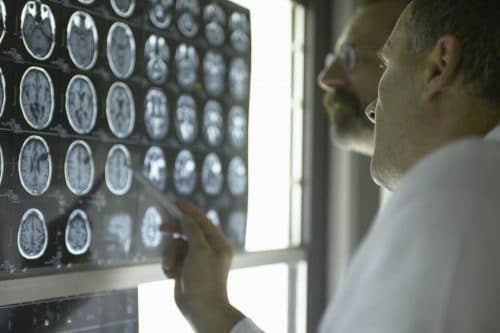A traumatic brain injury can cause many different kinds of symptoms affecting victims’ quality of life.

Many different kinds of personal injury accidents—such as motor vehicle accidents, sports accidents, falls, etc.—can result in traumatic brain injuries. Often, the impact causes the brain to slam back and forth inside the skull, resulting in damage to multiple areas of the brain. This is part of the reason why traumatic brain injuries can be so complex and so devastating for victims and families. Here are the different types of symptoms that can result from a traumatic brain injury.
Physical Symptoms
The first symptoms that will be noticeable after a brain injury are physical symptoms. For example, even a mild concussion can result in headache, nausea, dizziness, and confusion. More serious brain injuries can cause loss of consciousness. In some cases, these physical symptoms can last long after the initial injury, and may be joined by problems like tremors, seizures, blackouts, extreme fatigue, and issues with motor control.
Cognitive Symptoms
When a brain injury affects the frontal lobes, this affects the victim’s reason and logic. Memory impairment is a common result. Frontal lobe damage can also impair the victim’s ability to process information, grasp abstract concepts, and express themselves. Their ability to make decisions may also suffer.
Perceptual Symptoms
There are many different areas of the brain that help control our perception of the world around us. These areas are found in the parietal, occipital, and temporal lobes. When these areas of the brain suffer damage, it can affect the victim’s ability to see, hear, taste, smell, and touch. In some cases, symptoms may also include changes in sensitivity to pain, balance problems, spatial disorientation, and an inability to sense time.
Behavioral/Emotional Symptoms
A traumatic brain injury has the potential to change the victim’s behavior and emotions so much that they seem like an entirely different person. For some victims, emotions become heightened to the point where they may seem very moody and unstable. For others, emotional reactions may become dulled. In either case, victims may display increased irritability, aggressiveness, and impatience.
Be Sure You or Your Loved One Gets Appropriate Care
The road to recovery after a traumatic brain injury can be long and difficult. Of course the severity of the injury will affect the recovery process, but even so, some victims may recover in a matter of months while for others, recovery can take years. It is also possible that some symptoms may become permanent after a serious brain injury.
This makes it very important to ensure that victims receive all available medical care and treatment that could help facilitate recovery and/or help them cope with lingering symptoms. In addition to immediate medical treatment for wounds associated with the head injury, victims may need physical therapy, occupational therapy, speech therapy, psychological counseling, and more.
All of this therapy can be expensive, even with good insurance. Fortunately, when traumatic brain injuries are caused by the negligence of another party, victims can seek compensation. This compensation will not only include the funds necessary to pay for past and future medical care, but can also help make up for lost income and lost earning power. Significant compensation for pain and suffering may also be possible in cases where victims have permanent symptoms or impairments.
At The Law Offices of Larry H. Parker, we have secured over $2 billion in compensation for our clients, and we’re confident we can help you maximize your compensation for a traumatic brain injury. To learn more, call us at 800-333-0000 for a free consultation.



